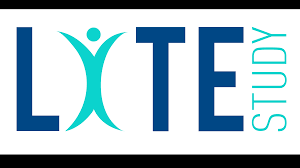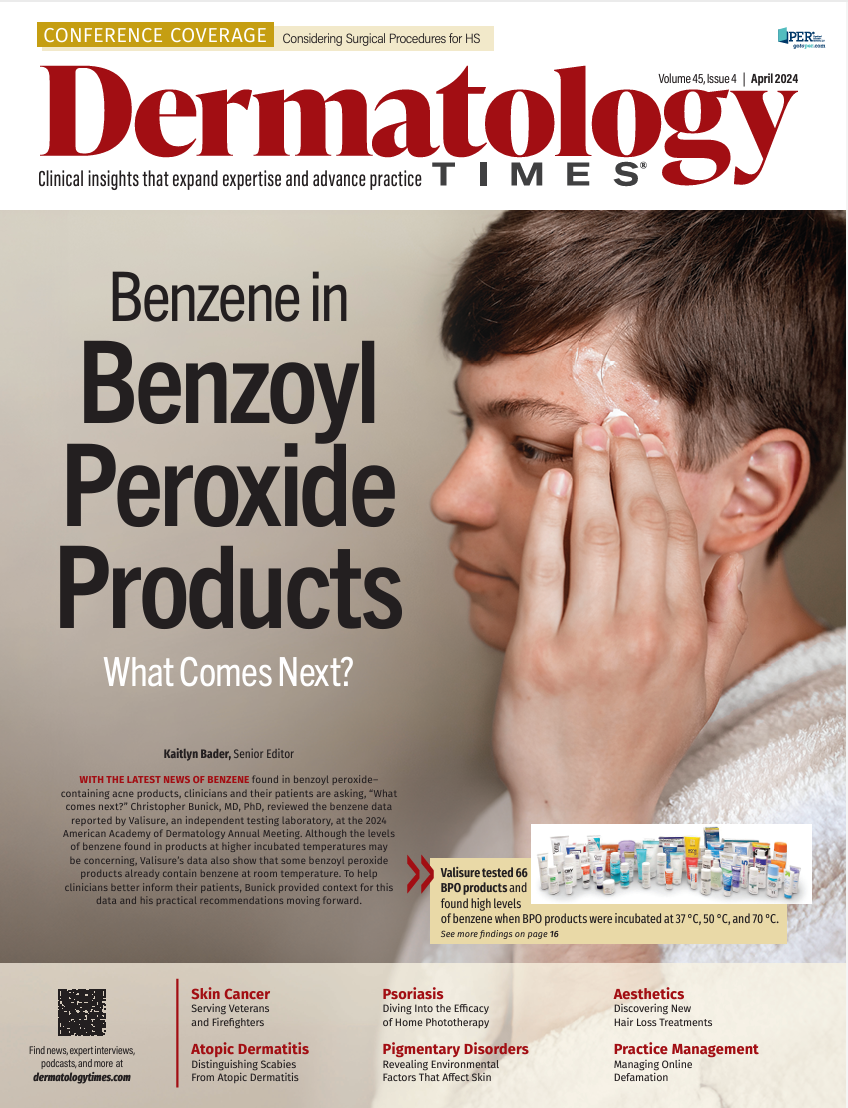- General Dermatology
- Eczema
- Alopecia
- Aesthetics
- Vitiligo
- COVID-19
- Actinic Keratosis
- Precision Medicine and Biologics
- Rare Disease
- Wound Care
- Rosacea
- Psoriasis
- Psoriatic Arthritis
- Atopic Dermatitis
- Melasma
- NP and PA
- Skin Cancer
- Hidradenitis Suppurativa
- Drug Watch
- Pigmentary Disorders
- Acne
- Pediatric Dermatology
- Practice Management
Making Psoriasis Treatment More Accessible: LITE Study Shows Home Phototherapy Success
In an AAD late-breaking research session, Joel Gelfand, MD, MSCE, FAAD, presented in-depth results of the LITE Study.
In a late-breaking research session at the 2024 American Academy of Dermatology (AAD) Annual Meeting in San Diego, the Light Treatment Effectiveness (LITE) study ushered in a new era for the treatment of psoriasis. The study, a collaboration between the National Psoriasis Foundation (NPF), the University of Pennsylvania Perelman School of Medicine, and the University of Utah, presented compelling evidence that home phototherapy is as effective as office-based treatment for psoriasis. This marks a significant stride in making this treatment more accessible and emphasizes its role as a first-line option for patients. Joel Gelfand, MD, MSCE, FAAD, James J. Leyden Professor of dermatology and epidemiology at the University of Pennsylvania Perelman School of Medicine in Philadelphia, Pennsylvania, shared a sneak peek of the LITE study with Dermatology Times last month and presented in-depth results today.1

Home Phototherapy vs. Office Phototherapy: A Paradigm Shift
The LITE study, launched in 2019 and concluding in December 2023, enrolled 783 patients across 42 dermatology practices in the United States. The findings challenge the traditional reliance on office-based phototherapy, showcasing that home phototherapy is non-inferior in terms of both effectiveness and safety. Gelfand served as the principal investigator of the study and underscored the importance of these results saying, "These results are incredibly significant, as they are comparable to the effectiveness of many biologic and oral treatments for psoriasis."
The study demonstrated that more patients randomized to home phototherapy achieved clear or almost clear skin (32.8% vs. 25.6%) with no significant impact on health-related quality of life (52.4% vs. 33.6%) compared to those receiving office-based treatment. The statistical significance (p value <0.0001) for both physician and patient reported outcomes solidifies the case for home phototherapy.
Addressing Barriers to Phototherapy Access
Phototherapy remains a preferred option for psoriasis treatment, but barriers such as limited geographic availability, inconvenience of regular office appointments, and high copays hinder its accessibility. Home phototherapy, while a potential solution, faces resistance due to a lack of diverse data on its effectiveness in the US population. This has led to health insurance companies being hesitant to cover this treatment option, and healthcare providers may be uncertain about prescribing it.
The LITE study not only establishes the effectiveness of home phototherapy but also highlights its significance in overcoming challenges faced by patients. About 40% of patients had previously used pills or biologics, showcasing the need for alternative treatments. Moreover, the study emphasizes that higher adherence to phototherapy leads to higher effectiveness, with approximately 60% of patients achieving clear or almost clear skin by completing an average of 2 or more sessions per week over 12 weeks.
Paving the Way for Policy Changes
The implications of the LITE study extend beyond clinical findings. Kristina Callis Duffin, MD, MS, professor and chair of the department of dermatology at the University of Utah,co-principal investigator, emphasized the potential impact on health insurance coverage and said, "Outcomes from this study could have a profound impact on health insurance coverage for individuals living with psoriasis." The study involved health insurance payers, acknowledging the importance of collaboration to transform the health of psoriasis patients.
The study, funded by the Patient-Centered Outcomes Research Institute (PCORI), urges health insurance companies to reconsider coverage for home phototherapy. Leah M. Howard, President and CEO of NPF, said in a statement to Dermatology Times, "Data from the LITE study strongly support the need for elimination of copays for phototherapy delivered in the office and the need for better coverage of home phototherapy machines to improve patient health outcomes for all populations across the United States."
Opportunities For Further Research in Other Conditions
Joel Gelfand, MD, MSCE, FAAD

“As I reviewed at the 2024 Masterclasses in Dermatology conference, beyond that, a lot of new studies are emerging showing the role of phototherapy augmenting response to our most novel outstanding therapies,” Gelfand explained to Dermatology Times. “For example, a study showed that people going on dupilumab (Dupixent) for eczema who also used phototherapy get better faster.2 There are also studies about using phototherapy to augment response for topical JAK inhibitors for vitiligo.3 We're making a lot of progress in medicine, but it's not complete. There are plenty of patients out there who are doing okay on biologic therapy, or new small molecules, and many people who are not. Adding phototherapy to the mix us can really help us maintain response, help people, and get to the ultimate objective we are trying to achieve for them.”4-7
Patient-Centered Approach and Advocacy
Crucially, the LITE study incorporated the perspectives of real people living with psoriasis, ensuring a patient-centered approach. Alisha Bridges, a member of the LITE patient stakeholder committee and someone living with psoriasis, emphasized the importance of these findings saying in a press release from NPF, "Results from the LITE study call for specific actions that will expand access to phototherapy and ensure the psoriasis community lives full and healthy lives."
Moving forward, the hope is that these findings will lead to policy changes, increased access to home phototherapy, and improved health outcomes for individuals living with psoriasis across the United States. Click here for more information on the LITE study, and to keep up with the clinical trial, NCT03726489, follow ClinicalTrials.gov.
References
- Gelfand J. The light treatment effectiveness (LITE) study: a pragmatic trial of home versus office-based narrow band ultraviolet B phototherapy for the treatment of psoriasis in the United States. Late-breaking research: session 1. Presented at: 2024 American Academy of Dermatology Meeting; March 8-12, 2024; San Diego, CA
- Rossi M, Rovati C, Arisi M, et al. A short cycle of narrow-band UVB phototherapy in the early phase of dupilumab therapy can provide a quicker improvement of severe atopic dermatitis. Dermatology. 2021;237(3):407-415. doi:10.1159/000512456
- Phan K, Phan S, Shumack S, Gupta M. Repigmentation in vitiligo using janus kinase (JAK) inhibitors with phototherapy: systematic review and Meta-analysis. J Dermatolog Treat. 2022;33(1):173-177. doi:10.1080/09546634.2020.1735615
- McCoy T, Natarelli N, Pan A, Shakhbazova A, Sivamani RK, Chambers CJ. Systematic review and estimated cost-efficacy of biologics compared with narrowband ultraviolet B light for the treatment of moderate to severe psoriasis and atopic dermatitis. Int J Dermatol. 2023 Apr 17
- Mehta NN, Shin DB, Joshi AA, et al. Effect of 2 psoriasis treatments on vascular inflammation and novel inflammatory cardiovascular biomarkers: a randomized placebo-controlled trial. Circ Cardiovasc Imaging. 2018 Jun;11(6):e007394.
- Iversen L, Conrad C, Eidsmo L, et al. Secukinumab demonstrates superiority over narrow-band ultraviolet B phototherapy in new-onset moderate to severe plaque psoriasis patients: Week 52 results from the STEPIn study. J Eur Acad Dermatol Venereol. 2023 May;37(5):1004-1016.
- Noe MH, Wan MT, Shin DB, et al. Patient-reported outcomes of adalimumab, phototherapy, and placebo in the Vascular Inflammation in Psoriasis Trial: A randomized controlled study. J Am Acad Dermatol. 2019 Oct;81(4):923-930. doi: 10.1016/j.jaad.2019.05.080. Epub 2019 Jun 1.

